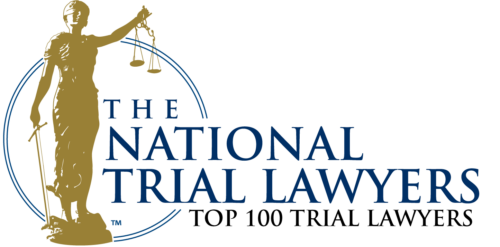If you were injured due to the negligence of another person, you deserve to be compensated for medical bills, lost wages, property damage, and pain and suffering. The legal claims process in Pennsylvania typically ends in a settlement, in which you receive an amount of compensation for your injuries. In most cases, you will not be able to collect more than the amount you settled for, even if you later realized your damages exceed the amount you agreed upon. The Reiff Law Firm explains more about the claims process, and whether it is possible to sue after an insurance settlement in Pennsylvania.
Claims Process in Pennsylvania
Within the first few weeks following your injury, you will be approached by the insurance company of the negligent person with a settlement offer. The first offer by an insurance company might be tempting, considering you will be faced with a lot of medical bills and might even be forced to cease working due to your injuries. Nonetheless, the first amount that is offered is typically a lower amount than what would be necessary to cover the long-term damages resulting from your injuries. Insurance companies are notorious for attempting to or underpaying accident victims, and so it is essential to have a Philadelphia personal injury lawyer assisting you in the claims process.
If you decide to accept a settlement from an insurance company, whether it is the first, second or third offer, you will only have access to the money by signing a release. A release is a contract in which you agree on the amount of compensation, and agree not to pursue any further legal action related to the accident that led to your injuries. Thus, in most cases, you cannot sue after the settlement—you agree to close your case. This is why you may want to consider not accepting the insurance settlement right away.
Insurance Laws in Pennsylvania
The law reflects the fact that insurance companies often take advantage of accident victims, and aims to protect against unfair practices. For instance, 40 P.S. § 146.7(f) prohibits insurance companies from threatening a victim that their rights will be taken away if they do not sign a release by a certain date.
In certain situations, the Unfair Insurance Practices section of Pennsylvania’s code could even allow you to sue an insurance company even if you have accepted a settlement and signed a release. When you a sign a release form, you agree to “dismiss” your case. The two formal legal terms for dismissal are dismissed with prejudice or dismissed without prejudice. If your case is dismissed with prejudice, then your case is permanently closed, and you will not be able to reopen it. If your case is dismissed without prejudice, then you may be able to reopen it and try again, even if you have already accepted the settlement offer.
If Multiple Parties were Responsible for your Injury
One case in which you may be able to sue for more money after reaching a settlement is if there were multiple parties that share fault for your car accident. If you have signed a release that pertains to all parties involved in the accident, then you will not be able to sue for additional money. However, if you settle a claim with one party, you can still sue anyone else who contributed to the accident, thus allowing you to receive additional compensation after a settlement. You may also find yourself in a situation in which you discover an additional party is also partially at fault for your accident at a much later date. In this case, you would also be able to pursue a claim against them, so long as the statute of limitations does not expire. The statute of limitations determines how long you have to pursue a claim before the court may throw out your case. In Pennsylvania, you have two years from the date of the accident to initiate legal action.
Fraud
Another situation in which you may be able to sue after signing a release for a settlement is if the insurance company of the at-fault party acted in bad faith and engaged in any fraud or coercion during settlement negotiations. In this case, the at-fault party would act in a deceitful way by making false or exaggerated representations, which would negatively affect the other party. In this case, it may be possible for your settlement to be overturned. However, it is extremely difficult to prove fraud and you would need a practiced lawyer assisting you in this process.
When Your Release can be Set Aside
In general, settlements are legally binding, but there are legal protections that may allow your settlement to be set aside, or overturned. In any settlement agreement, both parties must understand their rights, obligations and what they are agreeing to. Fraud and coercion are both examples that may result in a settlement being set aside. Additionally, if there was a mistake of both parties and a mistake in drafting, a settlement may be set aside. However, if you simply did not understand or read the agreement, your settlement will likely not be set aside. If the release does not represent the intention of the parties, it may be set aside. Additionally, if the plaintiff’s incapacity has been used to the defendant’s advantage resulting in an inadequate settlement amount, it may also warrant that the settlement be set aside.
Steps To Take Before Settling
Since it is rare to be able to sue after settling your case with an insurance company, there are crucial steps you should take before accepting any settlement offer.
First, you will want to seek medical attention for your injuries as soon as possible, even if you do not think you need it. There may be an underlying injury that could surface later. It is important to have a medical professional diagnose your injuries and even estimate the possible future expenses that you may be faced with. It is essential that you understand the full extent of your injuries to be aware of any future expenses that you may have, or how your injury may affect your day to day life. Your injuries may result in years of pain, or prevent your from returning to work, or enjoying hobbies. It is also important to collect your medical bills and document any medical care, as well as work records or photographs that may be relevant to your case. Finally, it is very wise to have an experienced personal injury attorney review your claim to ensure you understand your rights as you sign a release and to ensure you receive full compensation for your injuries.
Call Our Law Firm Today
Though there are legal avenues you may be able to take, suing after accepting a settlement offer is relatively rare. Thus, it is important to have a Pennsylvania personal injury lawyer who can advise you on how much would be appropriate, and aid in the legal claims process to reach a settlement that is right for you. Our law firm has over three decades of experience handling complicated injury claims, and is here to work with you. Call to receive a free consultation at (215)-709-6940.
Related Posts
- What Should You Do After You Get into a Truck Accident in Pennsylvania?
- Are Canadian and European Truck Safety Standards Better Than the U.S.?
- How Long Do Train Accident Lawsuits Typically Last in Pennsylvania?
- Liability in Parking Lot Car Accidents in Pennsylvania
- How Often Do People Fall Off Roller Coasters?















